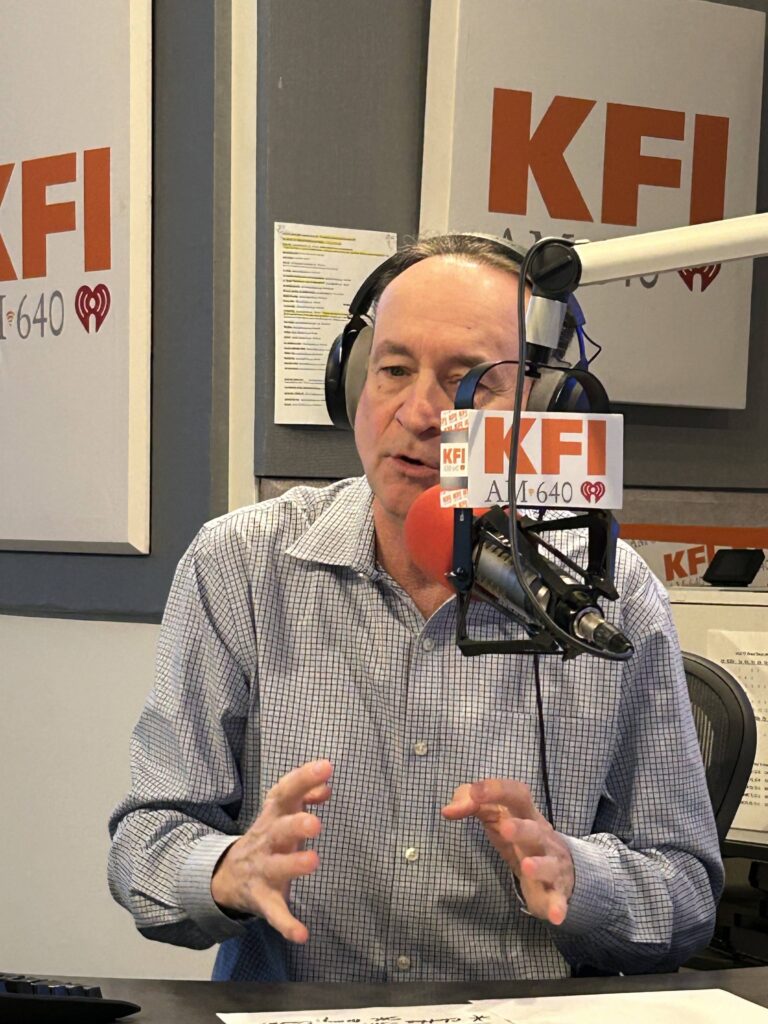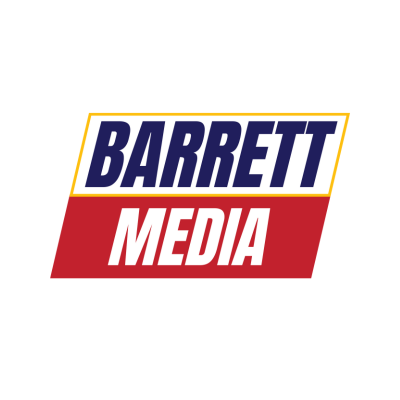Los Angeles is a unique market for several reasons. One of them — especially from a news/talk radio perspective — is because of the weather and natural disasters the region can experience. So stations like KFI-AM 640 and 790 KABC need to be ready for anything.
This happened as the area saw virtually unprecedented wildfires stir, with hundreds of thousands of residents being asked to evacuate and hundreds upon hundreds of buildings being destroyed as hurricane-force winds pushed the fires around the region.
Barrett Media spoke with Luis Segura, Program Director for Cumulus Media’s 790 KABC, as well as Chris Berry, iHeartMedia Executive Vice President of News, Talk, and Sports — who is currently serving as interim program director of KFI-AM 640 — to discuss how they were able to cover the event in such a difficult situation.
Barrett Media: What did your coverage of the LA Wildfire contain?
Luis Segura: Our live shows — The John Phillips Show, Mottek on Money, and The KABC News Blitz with Randy Wang — hosted the people closest to these tragic fires; victims, taxpayers, and decision-makers: newly elected LA DA Nathan Hochman, representatives from the LAFD, coordinators from the Red Cross, having an insurance adjuster answering questions, etc…
More importantly, we gave listeners a place to call and tell us not just what was happening but a space to vent their fears and frustration- the phones were ringing so hard they were practically buzzing. We utilized live coverage from our TV partners at KABC-TV and featured expert guest hosts like respected Meteorologist Rick Dickert. We leaned on the great relationships we have with our syndicated shows like Armstrong & Getty, Dan Bongino, and Guy Benson who provided exceptional ongoing coverage and perspectives. Total TEAM effort.
BM: How much different is covering a wildfire from covering other natural disasters?
Chris Berry: I think there are a couple of things about it. First of all, you have to remember that Mother Nature does not discriminate. So whether it’s a hurricane or a tornado or something like a wildfire or earthquake, it covers the entire region. And I think that what is unusual about it.
One of the differences is really between a wildfire and a hurricane is, we know a few days in advance. We do know that there are conditions that arrive for a fire, but you never know exactly where it might hit and what we saw with the devastation — especially in the Palisades area and also the Eaton Canyon fire — what we saw there was such a fast-moving event. At one point in the Palisades that fire was moving, they said at five football fields a minute.
So, a hurricane comes in fast, but you have the warning and these people had no warning at all. They lost power, they lost internet, they lost their cell service in many cases. But once again radio was there.
LS: The disaster of an earthquake is so fast that you’re mostly dealing with the aftermath. These fires were so devastating, unique, and so widespread — and the highly controversial way they were handled — made this really an unprecedented, unfolding-in-real-time news event.
BM: What challenges did you face?
LS: The biggest challenge was the environmental unknown of where the winds or potential arson could take these fires next. Everything changed from moment to moment. Our tower was in a safe location, far away from any threat.
CB: I think that one of the biggest challenges that anybody has in a situation like this, whether they are a television station or radio station, is the fact that you have to be able to deliver accurate information as quickly as possible. And you have to stay on the air 24 hours a day. There’s no there’s no getting out of it. Once you’re into it, you’re into it, because the story is so fast changing. I think that making sure that you’re providing the most up-to-date, accurate information and doing it whether it’s 2:00 in the morning on a Sunday morning or 2:00 in the afternoon on a Wednesday, you’ve gotta be there to provide that content.
We were fortunate in that we have a staff that lives for this type of story, being able to provide that kind of public service. So they really turned out, all hands on deck.
BM: How important is having a plan ahead of time to pulling off coverage when it’s time to enact that plan?

CB: I think that every radio station has to have their disaster plan. A lot of times it’s tied to the weather or mother nature because of the fact it might be a hurricane or tornado depending on where you are.
But we talk about things like making sure that that plan is printed up because a lot of times, if you lose electricity, you’re not gonna have a computer. You’re not gonna be able to print out the plan or even look up the phone numbers you need to have. You have to have everybody’s phone number there whether it’s your own staff or whether it is the power company, the fire department, and so forth that you can reach out to.
That’s one of the things that is really important, too, to the emergency plan. And then the other thing that I think is that that should be conveyed to the entire radio station. When the big story happens, it is all hands on deck and they should be prepared to turn into reporters.
You have to be prepared to react, to react quickly, and everybody needs to understand that broadcasting — especially news broadcasting — is a 24/7 business. There really isn’t time to take off when you have the big story because of the public responsibility that you have to the audience.
LS: My mentor always reminded me to do my best thinking ahead of time. So, a plan is essential, but it just can’t sit on a shelf and dusted off when needed. You can’t just keep it to yourself. Share it with everyone, board ops, talent, producers, and even traffic. And always be ready to pivot, stay flexible.
Berry shared that KFI-AM 640 was likely to be the first outlet to report on the fires after a listener called the station to say they saw smoke in the Pacific Palisades area that was so widely damaged from the blaze. The call came to the station before firetrucks were even on the scene battling the fire.
For Luis Segura and 790 KABC, he added that finding answers to important questions has been and will continue to be the station’s goal going forward.
“KABC’s focus is always to candidly and compassionately drill down to the root cause of events and issues,” he shared. “Balance the tragedy with finding solutions that invoke optimism and chart a path to the best outcomes. Be honest and ‘bring the receipts,’ as Dan Bongino says. That is what listeners expect from fast-paced, fact-based 790 KABC.”
Barrett Media produces daily content on the music, news, and sports media industries. To stay updated, sign up for our newsletters and get the latest information delivered straight to your inbox.






